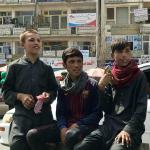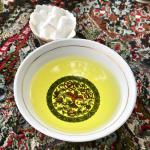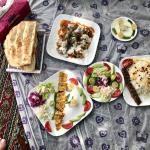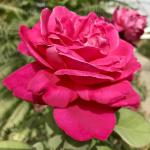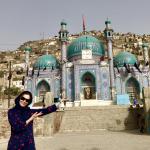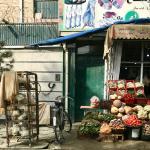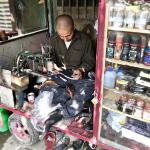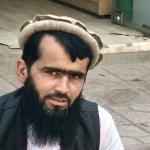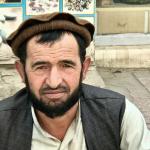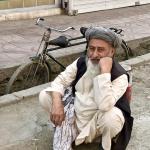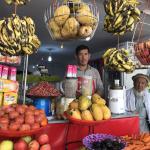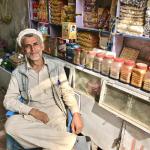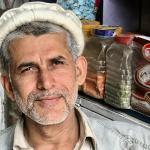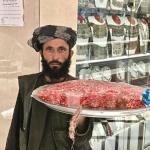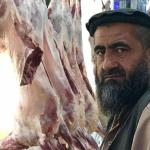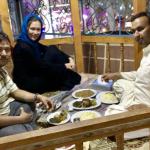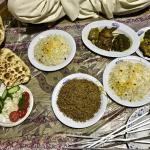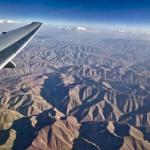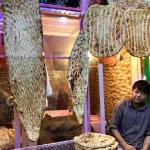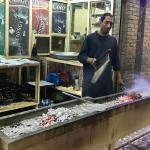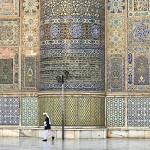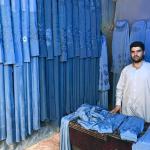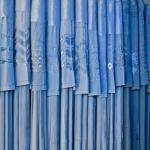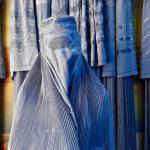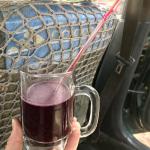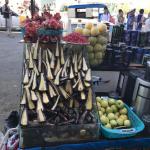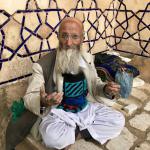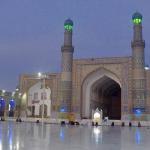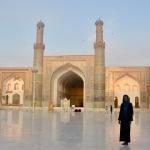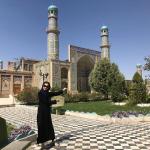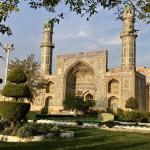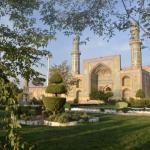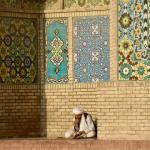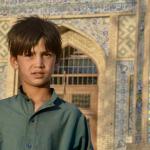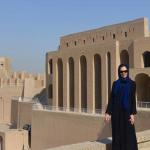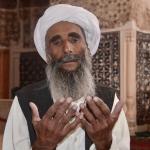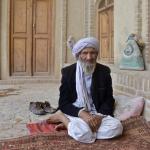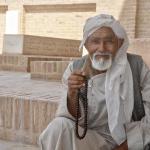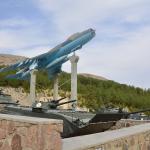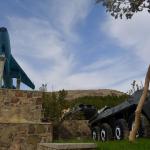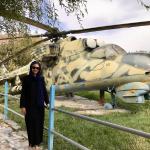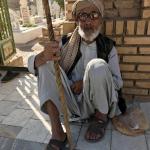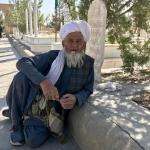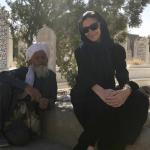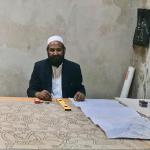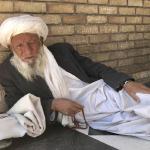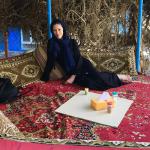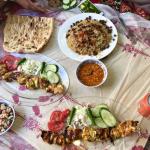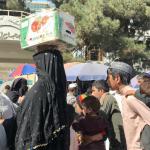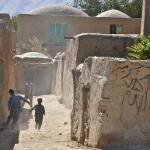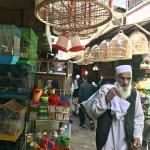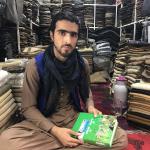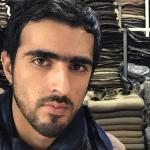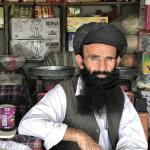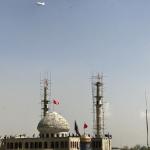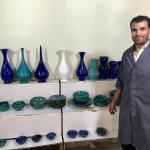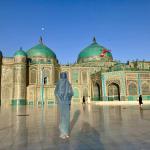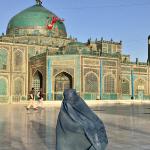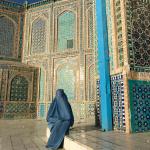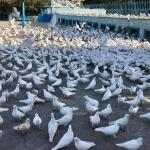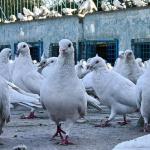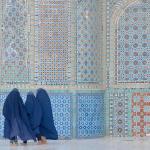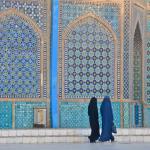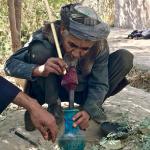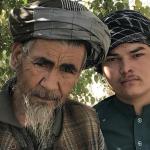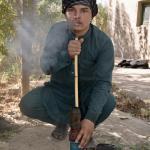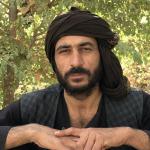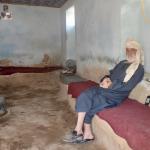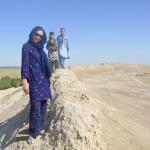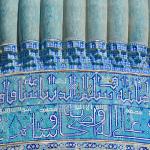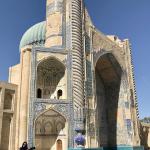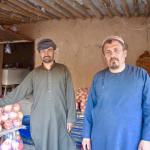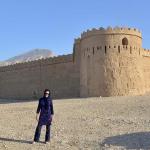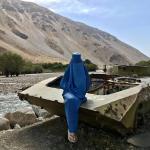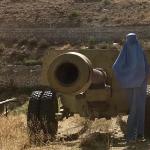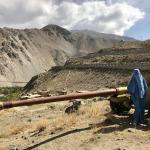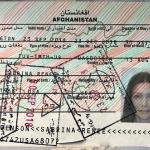© 2011 Sabrina Swenson. All Rights Reserved.
Afghanistan
It shouldn't need an introduction. We've heard her name for years. Officially the Islamic Republic of Afghanistan, this landlocked, mountainous country resides in South Asia. It's bordered by Pakistan, Iran, Turkmenistan, Tajikistan and Uzbekistan. It's capital, Kabul is its largest city. The population stands at over 35 million, mostly composed of ethnic Pashtun, Tajik, Hazara and Uzbek. Afghanistan remains one of the poorest countries in the world due to lack of foreign investment, government corruption and the Taliban insurgency. The 2001-present war has resulted in over 90,000 direct war-related deaths, which includes insurgents, Afghan civilians and government forces. Over 100,000 have been injured.
My trip began with a flight into Kabul. I secured a guide in advance, although interestingly, a guide isn't actually mandatory for Afghanistan, but I thought it a good idea. Airport security is understandably strict. Those not flying are not allowed anywhere near the terminals. As such, after clearing customs, I walked out of the terminal and down a long path to the waiting area. I quickly found my guide, Gull, an ethnic Hazara, who had a smiling face that reminded me of a cherub. He took my bag and we headed for our nondescript vehicle and driver. No security personnel plus no armored vehicle equals no one is the wiser that I'm a foreigner. I thought this was a better idea than the obvious expensive vehicle and numerous weapons-wielding guards which all scream "potential kidnapping (or worse) target right here!" We dodged oncoming cars and endured the notorious Kabul traffic all the way to the guesthouse. Upon arrival, I didn't even realize we were at a guesthouse as there were no signs what-so-ever. There was simply a huge cement wall that we approached. The wall eventually slide open and we drove into a sectioned off area. The guard inside, sporting a Kalashnikov over his shoulder, greeted us and allowed us to pass through an entry door. We went through a small hall and out the next door, then walked down another path. This led to a sidewalk in a flower-filled courtyard where one loud, barking German Shepard paced behind a nearby fence. Finally into the hotel, I got my keys and dropped my bag. I would discover all guesthouses we stayed at in country would be no-name, local places. This was done on purpose, of course, as big name, expensive Western style hotels are always terrorist bombing/shooting targets. Staying in these obscure, local places, I thought brilliant.
Our first stops in Kabul included the Sakhi Shrine, Babur's Gardens, Chicken Street, Bird Street and a variety of other sites. We also drove up to the top of the hill that overlooks Kabul. I was surprised to realize it was the first time I noticed a large white blimp looming over the city center. Apparently the "eye of Kabul" is compliments of the US government. It's been flying over the capital for around 6-7 years. There's no one in the blimp, only equipment. It is tethered in place. Occasionally they bring it down when repairs or maintenance are necessary. On another day, we saw a similar blimp several miles outside of Kabul, apparently where a large military base is stationed.
It became a routine that every afternoon, we would stop at a juice shop. For some reason the mangos in Afghanistan are far better than anywhere else in the world! And so, I'd order a large mango juice. There were no other ingredients other than mango and some sugar whirled up in a blender and served in a large glass while the mango was still thick. The first place put a swirl of cream on top and a couple walnuts. I've never tasted anything so good! This would become our afternoon stop in every city after a long day out in the beating Afghan sun.
After a day in Kabul, the following afternoon we flew to the city of Herat in the Western part of Afghanistan. I was in awe of the beautiful mountainous views we had from the plane. All the flights we took in country were short, but necessary as driving was simply not an option due to security concerns. We arrived into Herat and another driver greeted us. We checked into another nondescript guesthouse and after dropping my bag, we were off. I noticed Herat was far more conservative in dress, than the capital. In Kabul, it was perfectly fine for me to wear a dress, around knee length with leggings or pants underneath. Of course, this was always topped off with a headscarf. In Herat, all women seemed to be covered up in a big, flowing, black chador. I brought an abaya with me, which is essentially a black, robe-like dress that goes all the way to the ankles. This was my garb for Herat.
The following morning we were out early before the sun came up to capture the sunrise over the Friday Mosque. As the sun broke, it cast a beautiful pink on the white marble floor of the mosque. Once the sun was completely up, we walked outside and around to the front, which was equally beautiful.
During the day we saw a variety of shrines, the tomb of Gowar Shad, the Massullah Complex and the shrine of Kohra Ansari at Gazar Gah. We also stopped at the Citadel of Herat. We got the bonus of watching Afghanistan pop star Valy Sazesh making a video. He was singing away in the Citadel while his team filmed his music video using a drone. You can see his video here. https://www.youtube.com/watch?v=IK88lbp92-o
One of my favorite things to do in Herat was to ride a tuk tuk. I've ridden them before in many countries, but still find them entertaining. For some reasons they don't exist in Kabul. These small vehicles are brightly painted and adorned. My guide and I hopped in the back seat and we sped off. Music was blasting and we hung on as the driver braved the obstacles of Herat's streets. Dogs, burqa-clad women and carts of fruits and vegetables all got in our way. The loud obnoxious music just made it all the more entertaining.
Later we stopped at the War Museum which included items left from the 1979-1989 Soviet-Afghan war. It included helicopters, tanks, aircraft, weapons, artillery and pictures of all the martyrs who perished during the conflict.
Lunch was usually eaten outside in Herat. Most restaurants have individual cabana type, wood structures out the back door of their restaurants. All large enough for a family to eat together. You would remove your shoes and crawl up on the platform, which was covered with a rug. Before the meal arrived, they would bring a thin plastic roll. You would unroll it and lay it on top of the rug, so as not to dirty it. Fantastic chicken and beef kabab, lamb, rice and bread along with salad was usually served. All were delicious.
After Herat, we boarded a flight back to Kabul as we couldn't fly directly to our next destination. As we roamed the streets of Kabul again, I wanted to buy a burqa, so my guide took me to a burqa shop. There were several women in the shop chatting and they seemed surprised I wanted to buy the local frock. I started trying them on and quickly realized my head was too big for every burqa I tried. Apparently my head is larger than the average Afghan womans! The women started to giggle and my guide translated that they stated "these burqa don't fit you!" Well, thank you for noticing my big American head! After trying on several I realized there was no difference in head size, only the length changed. And so, after much pulling, I eventually got one on, although it was quite tight. The shop owner stated they stretch after washing, although that has yet to be seen. I bargained a little and left with a light blue burqa at what I thought was the fair price of the equivalent of $13.
While driving around, I asked about education. I was told it is free for all, but very poor, although slowly improving. Three decades of conflict devastated Afghanistan's education system. In 2002, only an estimated one million children, mostly boys, attended school. Today, due to the efforts of international donors and the Afghan government, more that 10 million children are enrolled in school of which 39% are girls. Boys and girls are educated together when young. Around 10-11 years old, they are taught separately. Once in university, they are taught together again, but this varies depending on which area of the country you're in.
I also asked about marriage in Afghanistan. A brides father if offered compensation "a dowry" from the man wanting to marry his daughter. In the city, the amount offered is often around the equivalent of $2,600. In the countryside, it's even more, often reaching between $5,250-$10,500. I thought this completely exorbitant! Although the official marriage age is higher, unfortunately, girls as young as 11 are often "sold" into marriage. Once married, their education rarely continues.
Next we flew to Mazar-i-Sharif in the North. This was my favorite as it contained the stunning blue-tiled Shrine of Hazrat Ali, aka the Blue Mosque. This majestic mosque was the highlight of the trip. We arrived before dawn and sat on the cold marble in front of the mosque to watch the sunrise. I thought I'd give my burqa a try to see what it was like for the local women who chose to wear it. I was told wearing the burqa is a choice of the women, not because their husbands want them to wear it. There's light blue and dark blue. The only difference is personal preference. I was told there are also white ones, however I didn't see anyone wear them. I was told you see them more at weddings.
I slipped the burqa on and after a great pulling to get the head section on, I centered the mesh over my eyes. The front is open, so you simply grab both side and hold them together. The shorter piece that hangs from your head is left to dangle loose in front of where you grab the two sides. Other than the head being tight and the fact it was hard to see out of the mesh, it wasn't too bad. I would imagine if you feel like just rolling out of bed and don't feel like getting ready, it probably comes in handy! I also thought, while watching the many women walk by, that it has a certain elegance about it. It's actually beautiful to watch in motion. I look at pictures of me in my black abaya and I look down right dumpy by comparison!
The full-time residence of the Blue Mosque are thousands and thousands of white doves. They looked like pigeons to me, but everyone insisted they were doves. They are fed by the attendants of the mosque. They say that the doves are pure white because of the sanctity of the mosque itself. They also claim that If a dove with any coloring, arrives and stays, it too will eventually turn snow-white.
While in Mazar-i-Sharif, we drove out to the antient silk road city of Balkh. Included, was the beautiful Khwaja Abu Nasar Parsa shrine. We also stopped at a hash den. I stuck my head in, but since if was early morning, there were only two men inside. Apparently later in the day, when the men are finished with their work, they come here to smoke hash and socialize. Kind of like a social hour of Afghan sorts. Interestingly, it was located right next to a police station.
Another flight back to Kabul, this time very early in the morning. Upon arrival we immediately drove 95 miles North of the city to the stunning Panjshir Valley. Beautiful scenery and an abundance of pomegranate trees ensued. Some areas in the valley were littered with old tanks and artillery, again from the Soviet-Afghan war. The decade-long conflict certainly left reminders all over the country. After lunch, we eventually made the long drive back to Kabul. My trip to Afghanistan, now complete.
On my last morning I was driven back to the airport for one more run through the very thorough, triple security checks and questions about where I was going. I flew home with no problems what-so-ever.
I always enjoy travelling somewhere new. Yes, even to Afghanistan. Getting a glimpse of everyday life in this country we've heard so much about, was a treat.
And country after country I find it the same. Although we may look different on the outside and spend our days doing different things, really, beneath the superficial layer, we are all the same. We all love our family. We all want better for the next generation. We all experience a full range of emotions, that is the human experience. There really is no difference between any of us on that deeper level. Not even in Afghanistan.
September, 2018

